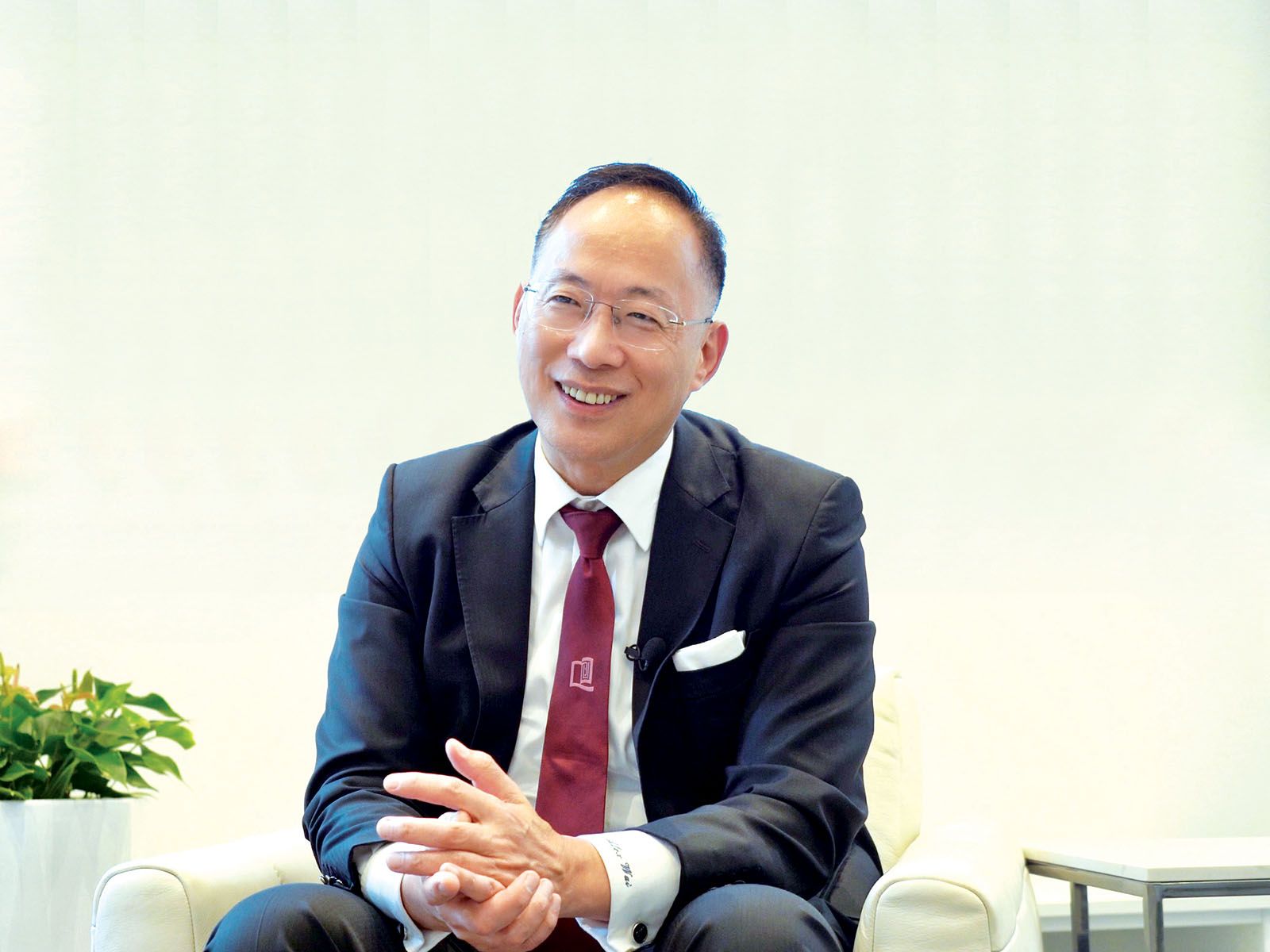
Hong Kong Baptist University’s new campus in Kowloon Tong, which will begin partial operations in the latter half of this year, is set to become a leading landmark in creative education, representing a new model of living-learning communities of the future.
And, to deal with the challenge of limited campus space, university President Alexander Wai Ping-kong has proposed relocating the entire campus to the planned university town in the Northern Metropolis, or other areas with ample land and comprehensive supporting facilities.
The total area of HKBU’s existing campus is 12.88 hectares — the smallest among the city’s eight government-funded tertiary education institutions. To broaden the space, it has built the Jockey Club Campus of Creativity, which covers an area of 7,430 square meters.
READ MORE: Arts, tech at the heart of society’s progress
The new campus is a vertically configured on Renfrew Road. It will have four blocks of residential colleges, providing 1,726 hostel places and doubling the number of residential places for students.
Besides dormitories, the campus provides about 5,000 sq m of academic space, including a creative hub equipped with state-of-the-art facilities for music, filming, television, video games and other creative disciplines.
The hub will provide teaching, learning and research space for the university’s Department of Music and the Creative Media and Practice Cluster, such as large-scale music recording studios and postproduction cinemas, along with an immersive facility called White Box Experimental Space, for scientific and artistic research — the first of its kind in Asia.
Wai notes that the scarcity of land in Hong Kong has led to many students having to reside outside the campus. Drawing from his own experience as a student in the HKSAR, he says long and tiring daily commuting is difficult to overcome, which not only affects students’ campus life, but also hinders their participation in social activities.
The new campus, adopting a new pattern of living-learning communities, will have dormitories and study spaces in the same building. Such a design makes the dormitories closely connected to the teaching area, reducing students’ commuting time. It’s aimed at encouraging them to integrate more deeply into the campus environment, dismantling the boundary between traditional campus life and the learning atmosphere, says Wai.
ALSO READ: HKBU embraces AI to promote HK's cultural innovation
He says the cost of land in Kowloon Tong District is relatively high, and the elongated layout of the existing campus hinders educational activities. The school will continue to try overcoming the restrictions to achieve greater development.
The Northern Metropolis University Town — seen as a potential site for HKBU’s future campus — was proposed by Chief Executive John Lee Ka-chiu in his Policy Address last year. The government has reserved 60 hectares to develop the town scattered in three locations in North District. The project is to encourage post-secondary institutions to strengthen cooperation with renowned Chinese mainland and overseas institutions. So far, 19 tertiary institutions have expressed interest in joining the project.


